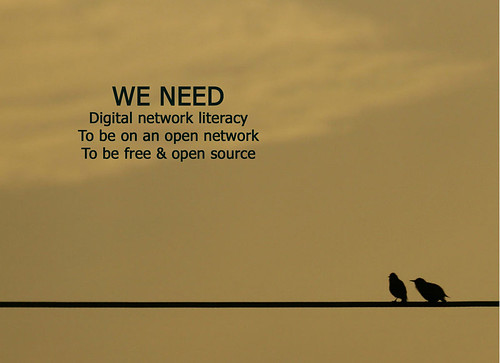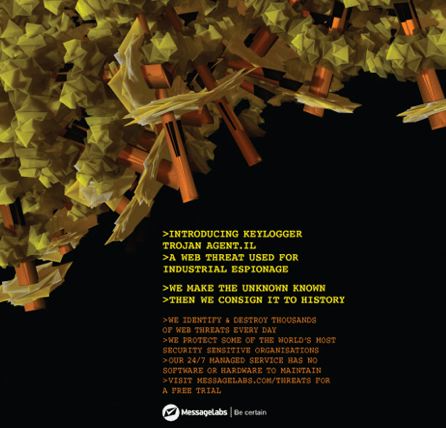
Henry Jenkins ELI Keynote address is podcasted here.
Jenkins opened with the sensible observation that contrary to media reports, Middlebury College’s much ballyhooed “banning” of Wikipedia was in fact a reasonable first step toward generating a dialogue, and an opportunity to open up the research process, one that can be conducted grounded in reason, not fear.
His subsequent talk proceeded fairly logically from there, and rather than me attempting a comprehensive summary, I’d say your time is better spent reading Jenkin’s own notes on a similar talk given six months ago or Bryan Alexander’s initial response — which he somehow published before the end of the session!
But again, a couple of my own quick takeaways:
* Jenkins made the rather obvious point that new literacies require the old literacies, that we are expanding literacy not displacing it. Obvious, sure, but do I remember to offer that caution when I argue with people about Wikipedia?
* In a succesion of action verbs describing how we deal with the flood of information in new media environments, I thought the best one was “negotiate.” Expect me to run that word into the ground.
* At one point Jenkins bemoaned how “most of us don’t know how to live in a collective intelligence.” To which I thought, most people don’t know how to live, period. That isn’t meant to be a flip as it sounds. We struggle to manage our friendships, our family relationships, our diets, our time, our finances, our engagement with civic institutions… why the hell would our ability to negotiate (HA!) inside complex and shifting cognitive constructs be any different?
My favorite part of the talk was his assertion that Wikipedia represents a challenge to the academic community to reclaim our role as public intellectuals. Bryan twitted the proposition: “What if each American academic spent 5 minutes in 2008 editing Wikipedia?” (My quick reply is that a significant proportion would get hooked, and end up spending a lot more than five minutes.)
Along those lines, I want to point to a very cool Wikipedia project that is part of a class taught by my UBC colleague Jon Beasley-Murray, “with the collective goals …to bring a selection of articles to “Feature Article” status (or as near as possible) by April 10.” Some of the topics are well-known, others don’t have entries at all.
Let’s break this exercise down a bit:
* Students will need to demonstrate all the traditional literacy skills (researching accurate materials, writing lucidly, determining and adopting the appropriate tone, etc…)
* Students will gain new media literacy skills, as they negotiate (HA HA) wording with other users (and anyone who has seriously engaged in a Wikipedia authoring process knows this requires some sophisticated social and diplomatic skills), and also work to make the articles notable enough to others to gain the desired “featured article” status. Students will thus gain an intimate knowledge and understanding of how Wikipedia really works.
* Rather than simply writing a paper that gets graded by a professor or TA and then returned, the outcome is publicly accessible. The activity is authentic, not simulated, and the product is a wildly popular open resource.
* The technology cost to the institution, and the required input from technology support staff at the institution – $0
The wild part is, Jon comes up with a cool idea like this pretty much every semester. Can’t wait to see what he thinks of next…
Technorati tags: ELIAnnual08, span312, literacy







